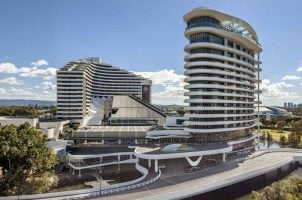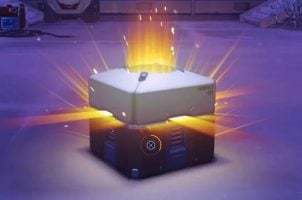Detroit Casinos Can Soon Welcome Back Self-Excluded Individuals, as State Amends Blacklist Protocols
Posted on: October 31, 2020, 12:05h.
Last updated on: October 30, 2020, 01:09h.
The three Detroit casinos can soon welcome back individuals who had previously self-excluded themselves from accessing the commercial gaming floors.

The Michigan Gaming Control Board (MGCB) said that after nearly 20 years, persons who voluntarily excluded themselves from MGM Grand Detroit, MotorCity, and Greektown for life can apply for removal. The caveat is only those who have been on the self-excluded list for five years or more can petition the state gaming regulatory for elimination from the directory.
The majority of our board felt the Disassociated Persons List lifetime ban in Michigan may have acted as a deterrent to gamblers who may be more likely to sign up if they have other self-exclusion options, such as a two- or five-year ban available,” explained Michigan Association on Problem Gambling President Michael Burke.
As of October 1, the Disassociated Persons List (DPL) included 4,825 people who had banned themselves from the Detroit casinos since 2001. The state does not offer a self-exclusion list for Native American casinos owned and operated by the 12 federally recognized tribes in the Great Lake State.
The MGCB says it has already received DPL removal applications.
Removal Process
On the MGCB website, there is now a form individuals can use to apply for removal from the casino ban list. The Michigan Gaming Control Board says it will respond within 30 business days of receipt of the application.
“By signing this form and requesting removal from the Disassociated Persons List, the applicant accepts full responsibility for any adverse consequences which may result from removing his or her name from the Michigan Gaming Control Board’s Disassociated Persons List,” the application requires the individual to acknowledge.
Persons who are granted removal, however, are not guaranteed access to the Detroit casinos. Each casino can continue to block access for someone who has been removed from the Disassociated Persons List.
“The casinos may elect to maintain your evicted status and deny you gaming privileges,” the board explains. “If a casino chooses to maintain your evicted status, it is your responsibility to contact the property directly, by mail or telephone, to discuss the possibility of reinstatement.”
Data supplied by the MGCB shows that the majority of the 4,825 individuals on the DPL are male. Nearly 65 percent — or 3,121 people on the list — are men.
The DPL has recently experienced a steep decline in the number of new added persons. In 2019, 216 people added themselves to the casino ban list. This year, only 54 people have joined. The drop is partially because of the three commercial casinos being closed by COVID-19 between March 16 through August 5.
Self-Exclusion Critical Tool
All US states with legal commercial gaming have a self-exclusion list. The gaming ban mechanism, experts say, is a valuable weapon in combating problem gambling.
People who have recognized they have a gambling disorder and are seeking treatment and support to stop gambling may find self-exclusion to be a useful tool for their own personal accountability to their recovery,” said Carol O’Hare, the executive director of the Nevada Council on Problem Gambling.
“If they have urges to gamble, they know that violating the voluntary self-exclusion agreement could result in embarrassing consequences, such as being charged with trespassing,” she added. “Self-exclusion can also be a way for the gambler to demonstrate to their loved ones, employer, etc., that they are truly committed to their recovery.”
Related News Articles
Most Popular
LOST VEGAS: The Foster Brooks Robot at MGM Grand
Bally’s Sets Date for Tropicana Las Vegas Implosion & Party
Most Commented
-
VEGAS MYTHS RE-BUSTED: You Don’t Have to Pay Resort Fees
— August 2, 2024 — 16 Comments -
VEGAS MYTHS RE-BUSTED: Elvis Was a Straight-Up Racist
— August 9, 2024 — 11 Comments -
ANTI-SOCIAL BEHAVIOR: Vegas Casino Buffet Stunt in Poor Taste Goes Viral
— August 16, 2024 — 7 Comments -
VEGAS MYTHS RE-BUSTED: The Strip Tried Appealing to Families and Failed
— August 23, 2024 — 7 Comments
















Last Comment ( 1 )
I wish to be reinstated too the detroit Casinos, because I have completed the States problem Gambler program, with a State Certified Professional Professor. I do not remember the exact year!!!!